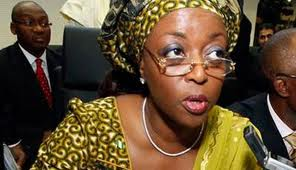 Nigeria’s government owes Nigeria National Petroleum Corporation for improper, informal loans used to cover a range of expenses, from a presidential helicopter to maritime security, a report of a partial audit will say. The audit, prepared by an outside organisation given access to accounts of the Nigeria National Petroleum Corp as part of a government effort to improve transparency at the firm, raises doubts over its independence Reuters reports.
Nigeria’s government owes Nigeria National Petroleum Corporation for improper, informal loans used to cover a range of expenses, from a presidential helicopter to maritime security, a report of a partial audit will say. The audit, prepared by an outside organisation given access to accounts of the Nigeria National Petroleum Corp as part of a government effort to improve transparency at the firm, raises doubts over its independence Reuters reports.
Nigeria, key supplier to the United States is pinning its future oil industry hopes on turning the debt-ridden NNPC into an independent profitable company emulating Brazil’s Petrobras or Malaysia’s Petronas. NNPC has a budget agreed by parliament. Other revenue it collects from oil production is meant to be passed to the government accounts, but industry experts say powerful interests tap money before it is sent through official channels. According to sources involved in the external audit, it will show outstanding debts owed to the oil company by a number of ministries and state agencies. The company paid for a $14 million presidential helicopter, and is owed $106 million by the state power firm and $124 million by a maritime security agency.
State governors are threatening to take the federal government to court over illegal tapping of oil revenues that should be shared with local government. The finance ministry and NNPC declined to comment on the debts and the presidency and oil ministry did not respond to requests for reaction.
“We are aware of many of these debts, obviously it isn’t an ideal situation,” an NNPC source told Reuters on condition of anonymity. State agencies in debt to NNPC should be funded through the budget, so such loans add to transparency concerns. The NNPC needs its own funds to pay for joint ventures with foreign oil companies, some of which have lain dormant due to a lack of state investment.
“It does highlight the extent to which NNPC has been drawn into the more opaque areas of government – and will give ammunition to those critics who say it has operated at least partly as a slush fund for government,” Antony Goldman, Nigeria oil expert at PM Consulting said. It points to the huge difficulties in making independent a corporation with such a complex web of assets and liabilities, at least some of which appear not to have been contracted solely on a commercial basis.”
Numerous earlier reports and audits have concluded that corruption has been rife within NNPC. Last year, Transparency International and Revenue Watch ranked NNPC as one of the least transparent oil companies in the world. A parliamentary report in May uncovered a $6.8 billion fraud involving a government gasoline import subsidy, which is partly run by NNPC. That report said NNPC was accountable to no one. It said the company owed oil traders, including privately-held Trafigura , $3.5 billion in unpaid bills.
Nigeria risks its 2 million barrel per day oil production declining in the next few years if it fails to reduce political uncertainty, corruption and criminality.
A long-awaited Petroleum Industry Bill (PIB), due to go to parliament for debate within days, is supposed to spin off some assets and replace the NNPC with a new, independent and partially listed National Oil Company (NOC). A copy of the PIB seen by Reuters is thin on detail, however. The draft PIB also states that the oil minister will oversee all institutions within the industry, raising question marks over how independent the NOC would be. Nigerian President Goodluck Jonathan replaced the managing director of the NNPC and three other senior directors last month in efforts to improve transparency and accountability.

